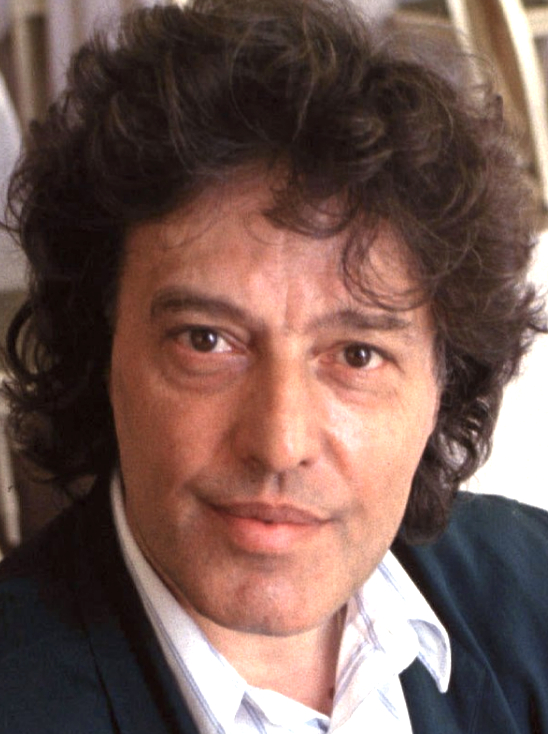On this date in 1937, playwright Tom Stoppard (né Tomás Straüssler) was born in Zlin, Czechoslovakia (now the Czech Republic), to Martha Becková and Eugen Straüssler, a physician. His parents were nonpracticing Jews. “His mother kept her own ‘Jewishness’ a secret; and so, Tom grew up with a safe sense that his relationship to Jewishness was past, distant and patrilineal.” (jewthink.org, March 18,2021) All four of his grandparents and three maternal aunts died in the Holocaust.
The Straüsslers fled Czechoslovakia in 1938 to escape the Nazis and then to Singapore, where the shoe company his father worked for had a plant. The family, except for Eugen, soon fled again as the Japanese approached Singapore. Eugen drowned in 1942 when the Japanese bombed the ship he was leaving on. By then, the rest of the family had evacuated to India.
In 1945 his mother married British Army Major Kenneth Stoppard, and she and her sons took his surname, moving to England the next year. His stepfather would prove to be anti-SemiticStoppard left school at age 17 to work as a journalist and drama critic, which introduced him to the theatrical world. He started writing plays for radio, TV and the theater.
A Ford Foundation grant in 1964 enabled him to spend five months writing a one-act play titled “Rosencrantz and Guildenstern Meet King Lear,” which evolved into “Rosencrantz and Guildenstern Are Dead,” which won the 1968 Tony Award for Best Play. A string of successful and award-winning plays followed, including “Jumpers” (1972), “Travesties” (1974), “Every Good Boy Deserves Favour” (1977), “The Real Thing” (1982), “Arcadia” (1993), “The Invention of Love” (1997), “The Coast of Utopia” (2002 trilogy), “Rock ‘n’ Roll” (2006), “The Hard Problem” (2015) and “Leopoldstadt” (2020).
Stoppard translated many plays, including those of future Czech President Václav Havel, into English in the 1980s, also a time when he joined Outrapo, a semi-serious French movement to improve actors’ stage technique through science. His 2013 radio production “Darkside” celebrated the 40th anniversary of Pink Floyd’s album “The Dark Side of the Moon.” His only novel, Lord Malquist and Mr Moon (1966), featured a donkey-riding Irishman claiming to be the risen Christ.
He has also co-written over a dozen screenplays, including for the Oscar-winning “Shakespeare in Love” (1998). He wrote and directed “Rosencrantz & Guildenstern Are Dead,” the 1990 film adaptation of his play. His papers are housed at the Harry Ransom Center at the University of Texas at Austin. He was knighted by Queen Elizabeth in 1997, entitling him to put “Sir” before his name.
Stoppard married Josie Ingle, a nurse (1965–1972), Miriam Stern, a physician and media consultant (1972–92) and Sabrina Guinness, an Irish television producer, in 2014. He has two sons from each of his first two marriages.
He once said he tries to live “as if” God existed, akin to Pascal’s Wager, but makes no claim to faith. “I don’t think of myself as being particularly spiritual. I’m quite hard-headed in fact, but I have a sense of, with great respect, science having a long honourable history of self certainty which needs modulating continually and I’m just very very curious about the unknown.” (This View of Life online magazine, May 2, 2015)
PHOTO: Stoppard in 1990 at the Venice Film Festival; Gorup de Besanez photo under CC 3.0.

